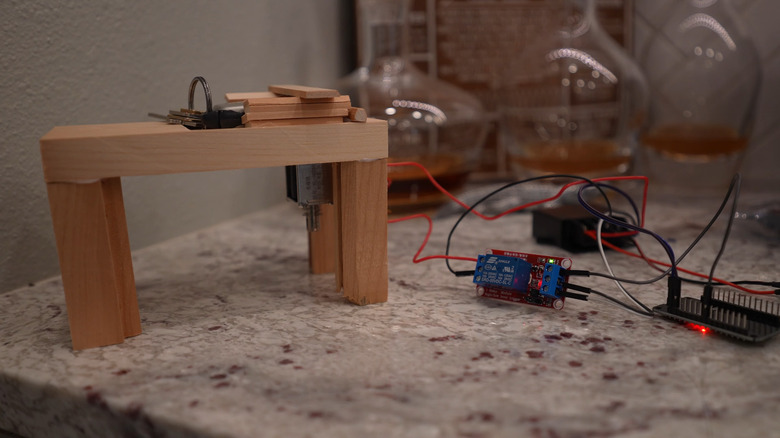This YouTuber Used Raspberry Pi And ChatGPT To Automatically Remote Start Their Car
Winter has its perks and drawbacks. After all, you're spared from the sweltering heat and experience fewer allergy symptoms all while enjoying the powdery snow. However, while winter can be good for your body, the same can't be said for your car. If it's out in the cold overnight, it's recommended to warm a cold engine up for about a minute before getting the vehicle out of your driveway. This ensures that your engine and all its moving parts are well-lubricated and ready to go.
While this sounds like an easy enough task, you've likely forgotten to do it a couple of times in the past. Beyond that, nothing could be worse than sitting in your car, anxiously waiting for it to warm up when you're already running late for work. A YouTuber solves that problem by automatically remote starting his car with the help of a Raspberry Pi project powered by ChatGPT.
What is the Raspberry Pi-based automatic car starter?
The project, detailed on the Break It Yourself YouTube channel, essentially starts a Toyota at a scheduled time and if the outside temperature hits below a certain threshold. At the heart of the project is a Raspberry Pi installed with Home Assistant, an open-source home automation software. The conditions (time and temperature) were set on the Home Assistant web app.
To detect the temperature, a simple temperature-humidity sensor was linked to the Home Assistant. Similarly, to start the car, an ESP32 was integrated into the home automation software. The developer did so by flashing the microcontroller with the ESPHome firmware, a Home Assistant add-on, and subsequently wiring it to the Raspberry Pi. This ESP32 board served as the controller for a relay-operated push-pull solenoid that presses the car fob in the correct sequence. In this case, two short presses followed by a long press on the lock button are required to start the Toyota.
To create the code for the sequence, the developer turned to the popular AI chatbot from OpenAI, ChatGPT. Although the code needed some tweaking, the script eventually worked like a charm and was able to activate the solenoid in the sequence required.

